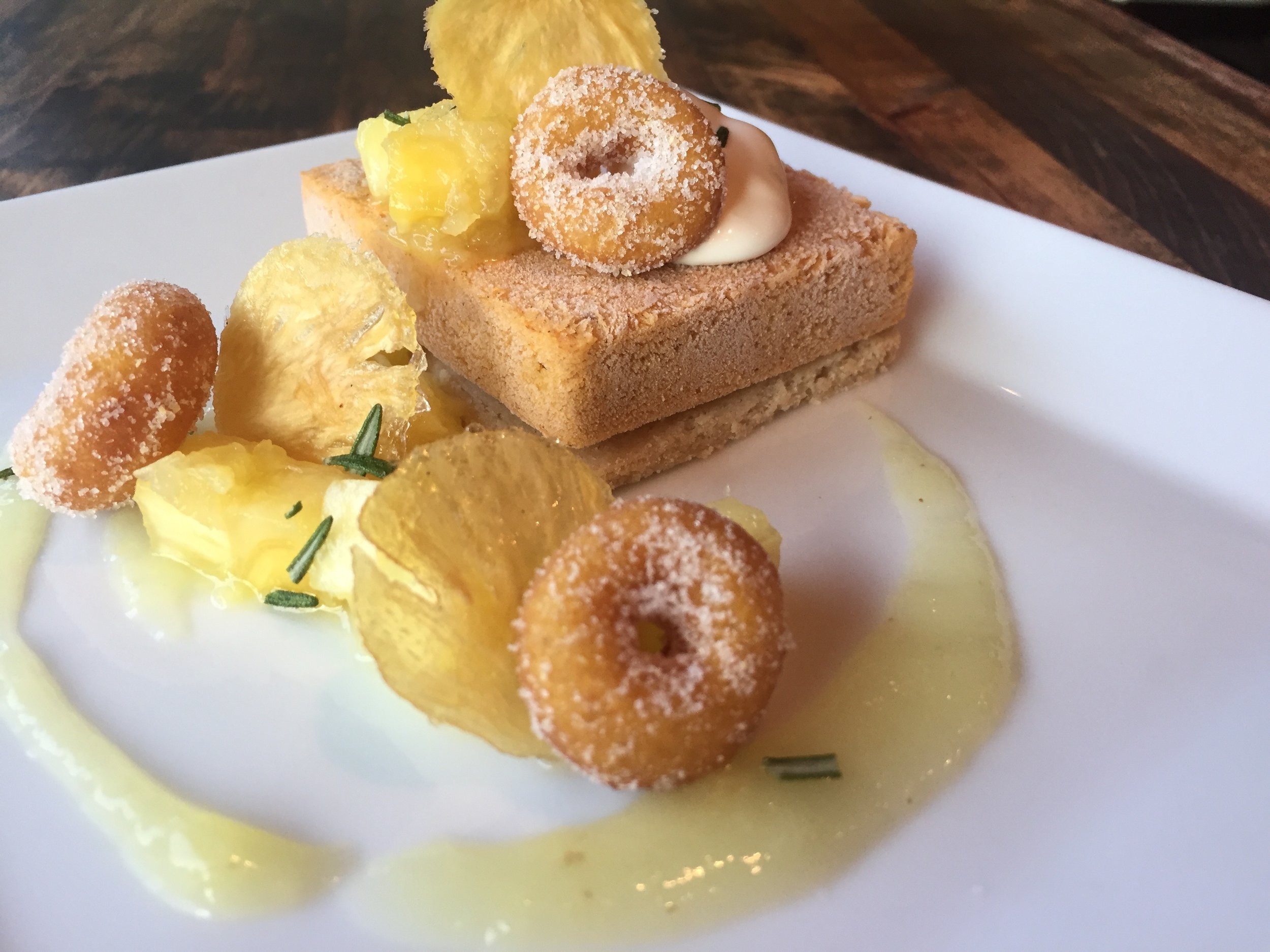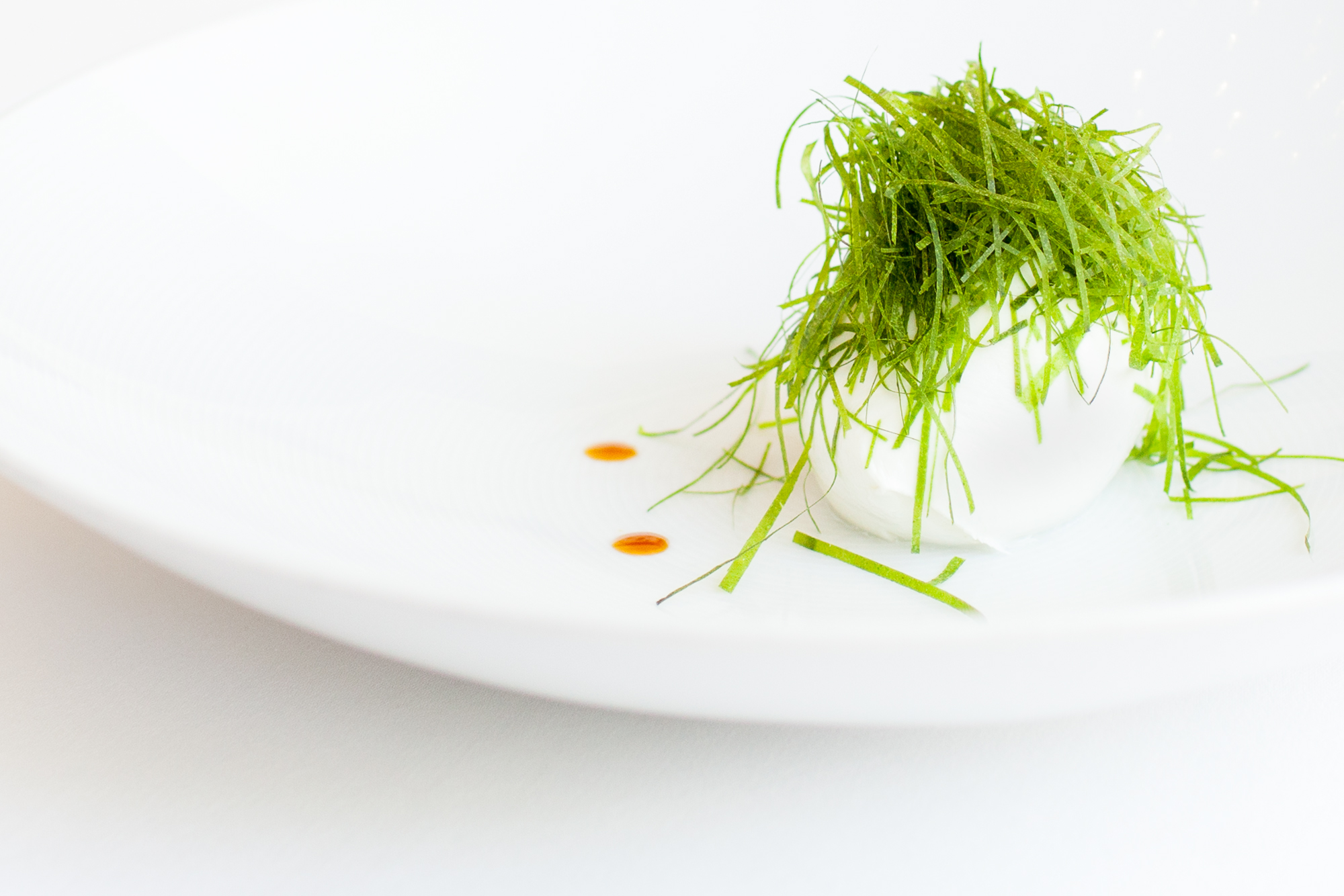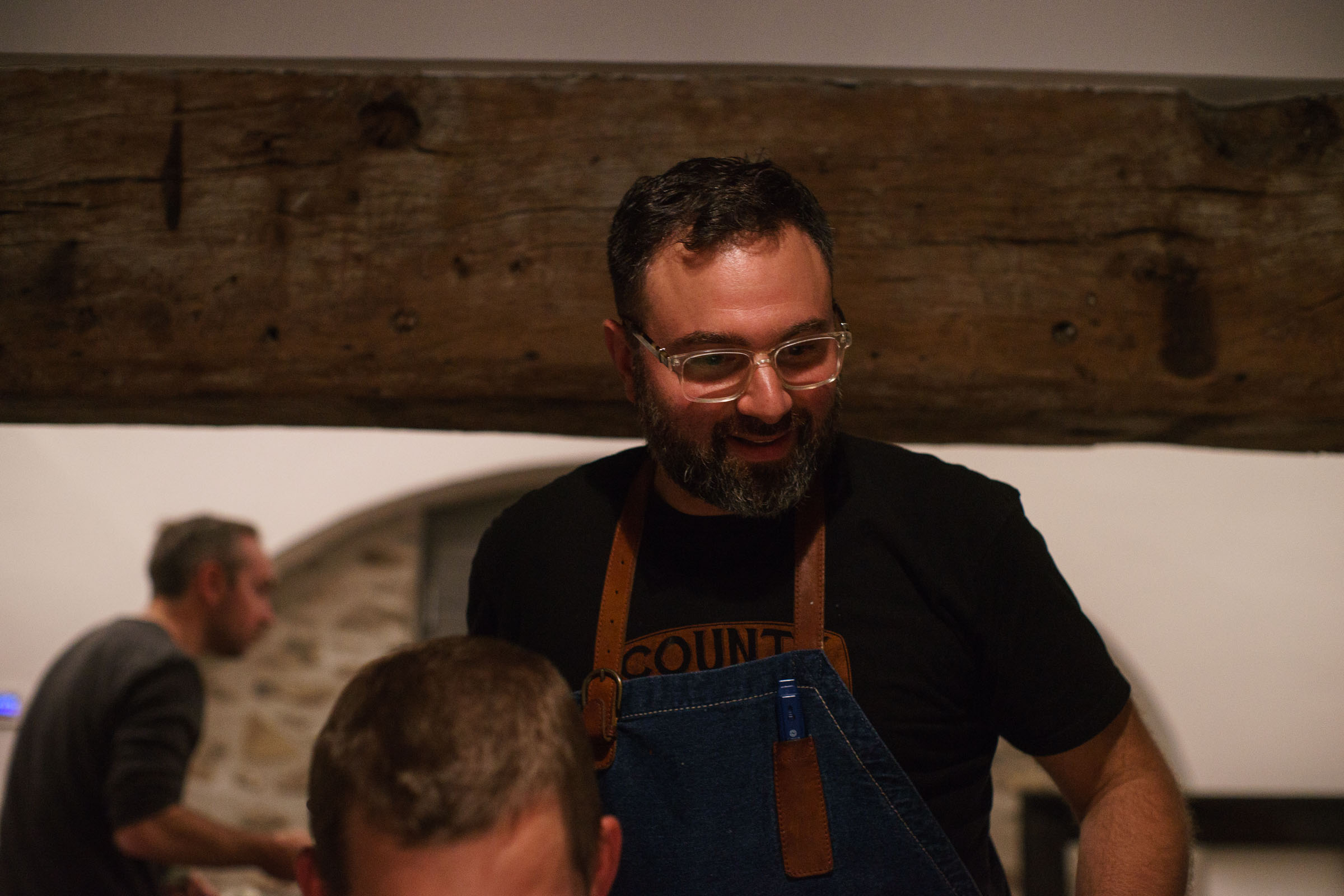Transforming Canada’s culinary and egg farming communities for a sustainable food future

Chef Matt Basile teamed up with first-generation Canadian egg farmer, Conrad Vanessen, at this year’s Terroir Symposium for an inspiring chat about the future of food in Canada. Together, they explored the ever-changing culinary and agriculture landscapes, diving into recent transformations and the importance of working together to promote the long-term sustainability of both sectors and the planet at large. Read on for a glimpse into their important discussion.
Cultivating a culture of growth by connecting with each other
There are many shared values amongst chefs and farmers and one aspect that Chef Matt and Conrad discussed is that both the culinary and egg farming industries need to continuously evolve to keep in step with changing mindsets, new skill sets and what our communities value. It is by embracing this approach that chefs and farmers alike can meet the needs of Canadians and support a strong, sustainable, food system.
Chef Matt noted the shift the Canadian culinary industry has undergone in recent years as a result of changing customer behaviour. “Chefs and restaurateurs made the shift by changing hours of operation, leaning into new food trends or offering alternatives for dietary restrictions, all while nurturing a positive and supportive environment for employees,” said Chef Matt.
Meanwhile, on the agricultural side, Conrad spoke about his life as an egg farmer, highlighting his dedication to continuously improving his skill set by drawing on the latest farming practices and how the egg farming sector as a whole is working together to embrace world-class standards. Conrad also underscored the need to connect farmers, chefs and Canadians and promote transparency in egg farm operations.
“There is tremendous value in bringing all these groups together. I’m very proud about what our Canadian egg farmers do and see the importance of educating consumers about where their food comes from and how it’s produced,” said Conrad. “Being part of the Terroir Symposium and having these conversations is a big step towards transforming the industry and being more transparent,” he added.

A trusting relationship starts with transparency
A recent study by Egg Farmers of Canada found that less than half (46%) of Canadians say they know where their food comes from, yet a majority (88%) feel it’s important the food they buy is produced sustainably. Building on these insights, Chef Matt and Conrad talked about the value of sustainable food production and the importance of transparent business practices.
“As farmers, we want to make the investments [in our operations] and be as sustainable and environmentally friendly as possible,” said Conrad. This means using resources wisely and continuously measuring and managing on-farm sustainability practices and goals. From embracing renewable energy and new smart technology, egg farmers are actively improving efficiency all while reducing waste. This is one of the many reasons why sustainability starts with Canadian eggs.
Meanwhile, Chef Matt spoke about the culinary industry’s recent focus on local, in-season and sustainably produced food. Behind this trend is the unwavering interest of customers in wanting to understand where their food comes from and the people behind the products they see on menus and purchase in stores – like eggs!
Evolving egg farming practices to become even more sustainable
As a final point in the discussion, Chef Matt and Conrad reflected on the transformation the egg farming industry has undergone over the past few years. While already a protein source with a low environmental footprint, egg farmers are working to ensure eggs are produced sustainably both now and in the future. The conversation focused on the importance of new technologies and techniques across various facets of egg farming, including animal care, environmental stewardship and food safety. They also highlighted the resources available to egg farmers to help them assess their impact on the environment and create sustainability action plans.
“I can go on my cell phone and see everything that is happening in my barn. I can see how many eggs are being laid, how much feed is being consumed, how much water my hens drank and the temperature of the barn to ensure my hens are comfortable,” shared Conrad. “As technology advances, it is amazing what we will be able to do to advance our sustainable on-farm practices. It’s a very exciting time!”
Some final thoughts
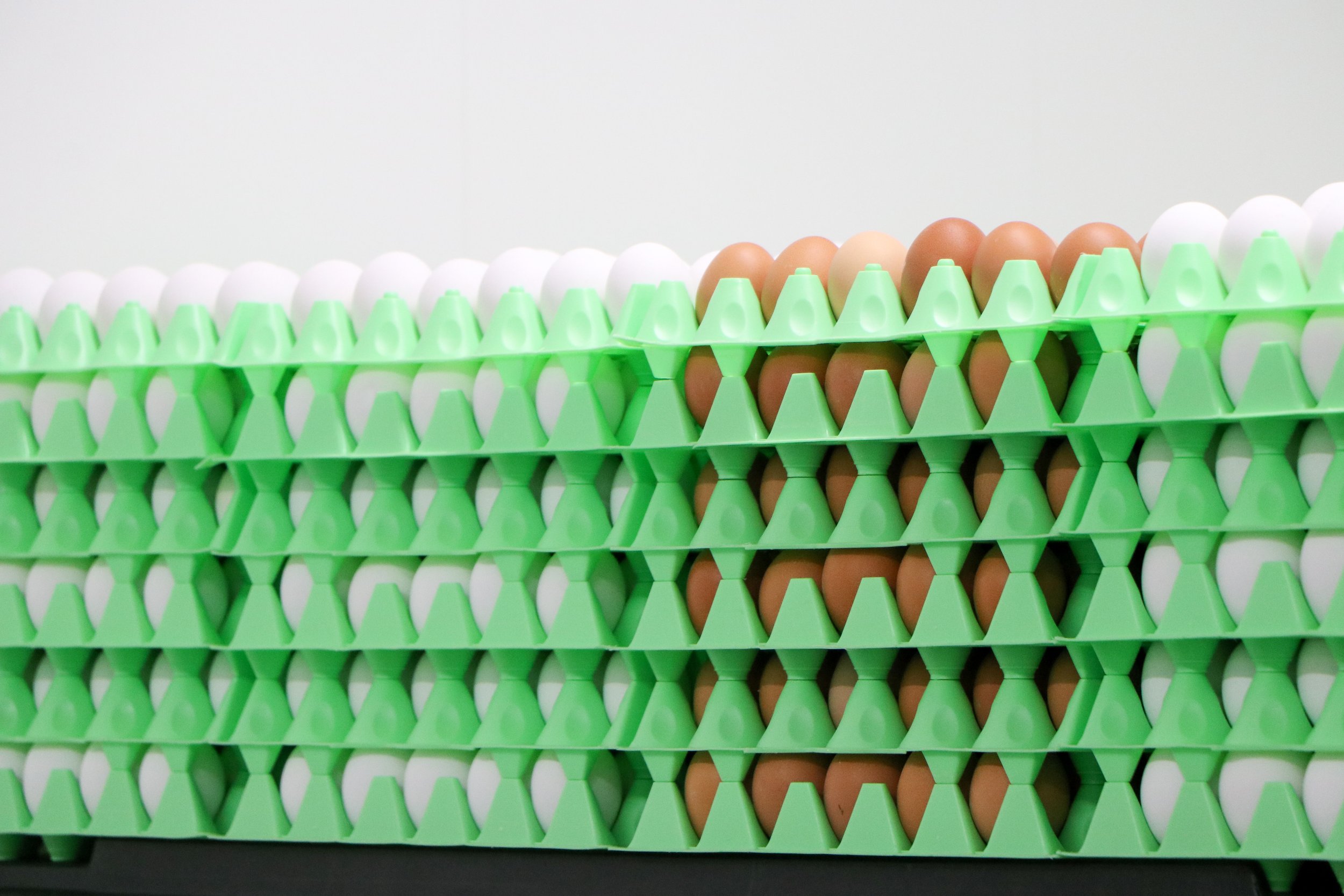
With Canadians becoming more interested in supporting local farmers and understanding the origins of their food, both farmers and chefs find themselves in an enviable position where they can help Canadians learn about how their sectors are progressive and evolving. From climate-smart business practices to local supply chains, Canadian egg farmers and our culinary leaders are leading the way to a more sustainable food future and a better planet for us all.
To learn more about Canadian eggs and how Canadian egg farmers are farming for a more sustainable future, visit eggfarmers.ca.
By Tawfik Shehata, Julia’s Child, A Food School for Families, Toronto, Ontario
By Nick Benninger, Fat Sparrow Group, Kitchener, Ontario
By Paul Rogalski, Rouge, Calgary
By Chef Jenni Lessard, Wanuskewin, Saskatoon, Saskatchewan.
By Kevin Kossowan, BCom Director | Story Chaser Productions Inc., | Creator, two-time James Beard Foundation Award Nominee From The Wild | Co-Creator of Wild Harvest, coming to PBS this fall, Edmonton, Alberta.
By Aman Dosanj, creator of The Paisley Notebook, Okanagan, British Columbia.
By Taeyoung Chang, Head Chef, Coho Coffee, Vancouver, British Columbia
Taken from Vij’s at Home: Relax Honey by Meeru Dhalwala & Vikram Vij. Vancouver, British Columbia.
By Justine Smith, Executive Chef, Sonora Resort, British Columbia
By Anissa Helou, cookbook author and chef based in London & Sicily
By Chef Rocco Agostino from Pizzeria Libretto, Toronto
by Crystal Luxmore Advanced Cicerone®, Award-Winning Beer Writer, Co-Founder of Beer Sisters Inc. and Cicerone Certification Program Canadian Rep
by Melissa Yu Vanti, Former Terroir Symposium Event Coordinator
By Miriam Streiman, Ontario, Canada.
By Amy Rosen, excerpted from Kosher Style: Over 100 Jewish Recipes for the Modern Cook. Photography: Ryan Szulc.
By Laurel Kratochvila, founder of Fine Bagels, Berlin
By Jeffrey Yoskowitz & Liz Alpern, excerpted from the book THE GEFILTE MANIFESTO. Photography by Lauren Volo.
by Ned Bell from Chefs for Oceans and author of Lure Cookbook. Canada
Listen and read Arlene Stein's talk: #noborders: Food as a tool for diplomacy in full, as spoke at Food on the Edge 2019 hosted in Galway City, Ireland.
“If someone asks you where you’re from. How would you define your sense of place?”
We were so happy to finish off 2019 with a festive gift linking the Terroir community of producers together in one unique offering! In partnership with Berlin's Candide artisan chocolate manufacturer, this holiday box of custom chocolates was made using cacao sourced through direct trade and ingredients sourced directly from Terroir’s network of producers.
by Angelika Schwaff from Reisefreunde, Content creator for travel and food
by Agnieszka Sendor from Pstrag Ojcowski fishery, Poland
by Elspeth Copeland, Food Product Developer, Canada
by Roni Saslove, winemaker & consultant, Tel Aviv
by Ksenija Hotic, Food Photographer, Toronto
by Andrea Mut, founder of mypocketkitchen.com
by Cynthia Barcomi, founder of Barcomi’s Deli, Berlin
by chef-duo Ricky + Olivia using Planet Shrimp produce, Ontario
by Victor Liong, Chef/Owner at Lee Ho Fook, Melbourne
by Lode van Zuylen, head chef at Lode & Stijn, Berlin
An excerpt from Best Kitchen Basics by Mark Best, Australia
by Jonathan Gushue, Executive Chef at Fogo Island Inn, Newfoundland
by Alan Micks, head chef at Michelberger Hotel, Berlin
by Carla & Poul Nielsen from Hindsholmgrisen, Denmark
Corn, soybeans, wheat, oats, rice, cattle, coffee, sugar, milk, cotton, orange juice - these are just a few of the food items currently being traded on the agricultural market, meaning big businesses must invest in the large scale production of these products in order to continue to feed their demand. In an era where most foodstuffs are fully commodified, we delve deeper into the meaning behind the practice and take a look at its modern-day realities.
by Charlotte Langley, Chef & PEI native, Canada
by Kerry, Daniel & Neil, founders of Barra, Berlin
by Amanda Cohen, head chef at Dirt Candy, New York
by Maksut Askar, head chef at neolokal, Istanbul
by Barry Serrao, executive chef at Paintbox Bistro, Toronto
What’s in a dish? A plate, bowl, cup; round, square, rectangular, oval, large, small, coloured, solid, printed or plain? Quite a lot as it happens. Plates are so often overlooked but they represent an important connection to our personal terroir. By following the Meissen porcelain story, we took the chance to think about how the serving vessels we use connect us to the world around us.
by Charlotte Horton, owner & winemaker at Castello di Potentino, Tuscany
by Albert Ponzo, executive chef at The Royal Hotel, Canada
Gastrodiplomacy is the tool of using food, wine and cuisine as an instrument to create cross-cultural understanding and improve international interactions and cooperation. It can be used to create trans-cultural conversations between societies as well as a platform which promotes peace, willingness and understanding and grows food communities.
by Helen Underwood, founder of White Cottage Baking School, England
by Sophia Hoffmann, author of Zero Waste Küche, Germany
At this year’s Terroir Symposium in Toronto, Terroir founder, Arlene Stein, moderated a vital main-stage panel aimed at helping food leaders better understand sustainable seafood procurement by informing an audience of chefs, restaurateurs, farmers and producers on how to make better and more informed buying decisions to ensure a sustainable future for our seas. Check out the panel’s learnings here.
by Voula Halliday, author of Eat at Home. Canada
by Jennifer Johnston from fisherfolk, Canada
by Kiki Aranita from Poi Dog Philly, USA
by Micha Schäfer, head chef at Nobelhart und Schmutzig, Berlin
The first thing you should know about Priscillia Occhipinti’s grappa is that it hasn’t won any bronze or silver awards. Oh no. Since taking over the distillery in 2000, Priscilla’s grappa has only ever won gold or double gold medals - over 100 to be exact.
HindsholmGrisen started in 2010 with the goal of making the best quality pork meat in the most natural way. After a decade of cultivating seed and grain crops, Poul and Carla Nielsen introduced pigs to maximize the full potential and biodiversity of their small farm.
The origins of winemaking (and the oldest known form of “natural” winemaking) are to be found in Georgia where, from around 4000BC, the people of the Caucasus mountains discovered that grape juices turned into wine when it left buried throughout the winter in a shallow pit.
Through this short film, Arlene Stein has united Norway's best restaurants, chefs, food experts and innovators in a study of successful food leadership, the importance of terroir, and how food leaders can not just bring the principle to life, but also make it relevant for a new generation of chefs and diners.
The future of food is increasingly volatile. We’re living in a world where entrepreneurs are working on machines which will dispense three, perfectly balanced meals per day. Our starting point at Terroir Tuscany was this call-to-arms by Venture Capitalist, Eric Archambeau.
Terroir is most notability defined through our foodways. The meals we share tell the story of our identity, so that what we eat can define who we are. When we examine food cultures through their regions we’re afforded a perspective into the past and a glimpse of the future through the ingredients, techniques and traditions at work. There is no constant, only a momentary look at the migration of people and their landscape.
Before reading this, breathe in and out. The article that follows may contain spills of blood but also delicious meat and decades of tradition
If you were to ask me 15 years ago what I thought the future of the restaurant industry would look like today, my answer would have been way off.
I have to say being a Canadian and being born with parents from a different heritage, I found it a little bit confusing as a chef to discover own my personal "sense of place" or terroir.
Food is a language, one that crosses borders, and one that we all speak. It’s full of slang, and shorthand, and we use each other’s words, and ingredients, and techniques, but when we sit down at the table we all know what each other are saying.
Food is one of the basic units of life & living. This gives us a commonality that transcends our differences. Our social functions small or large, religious celebration, iconography & symbolism and political diplomacy are centred around, and punctuated by, the offering of food.
